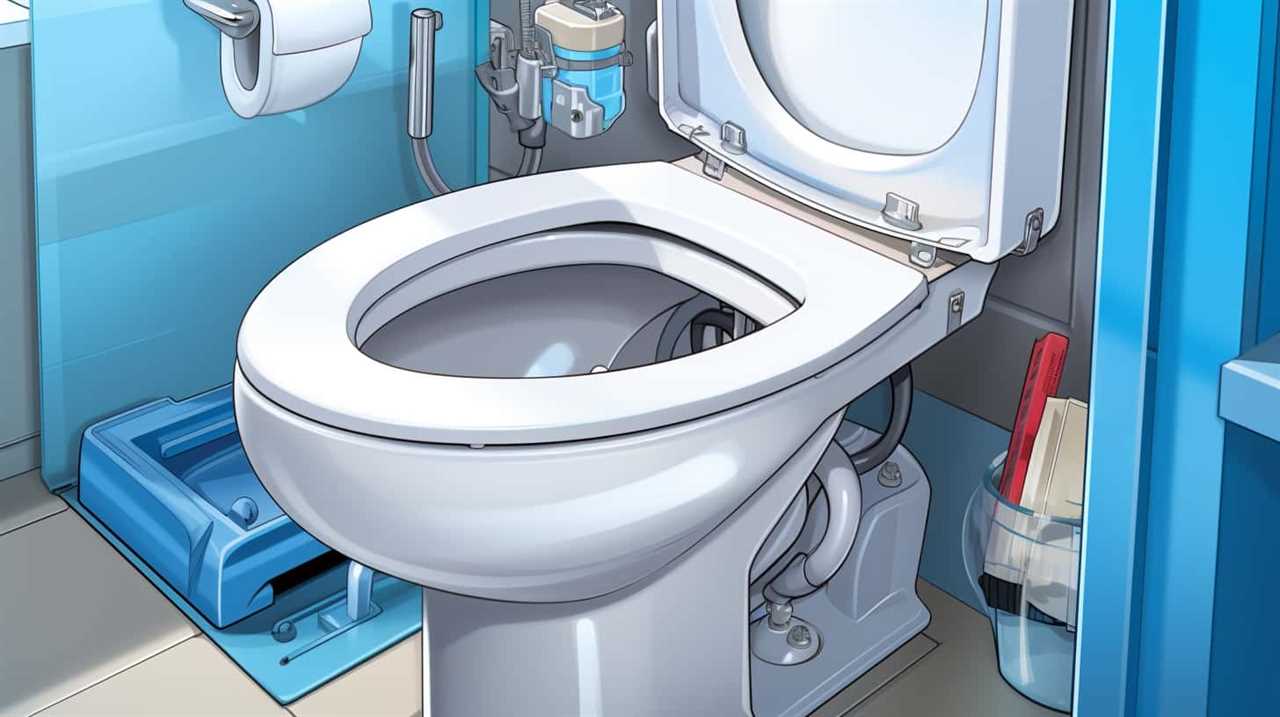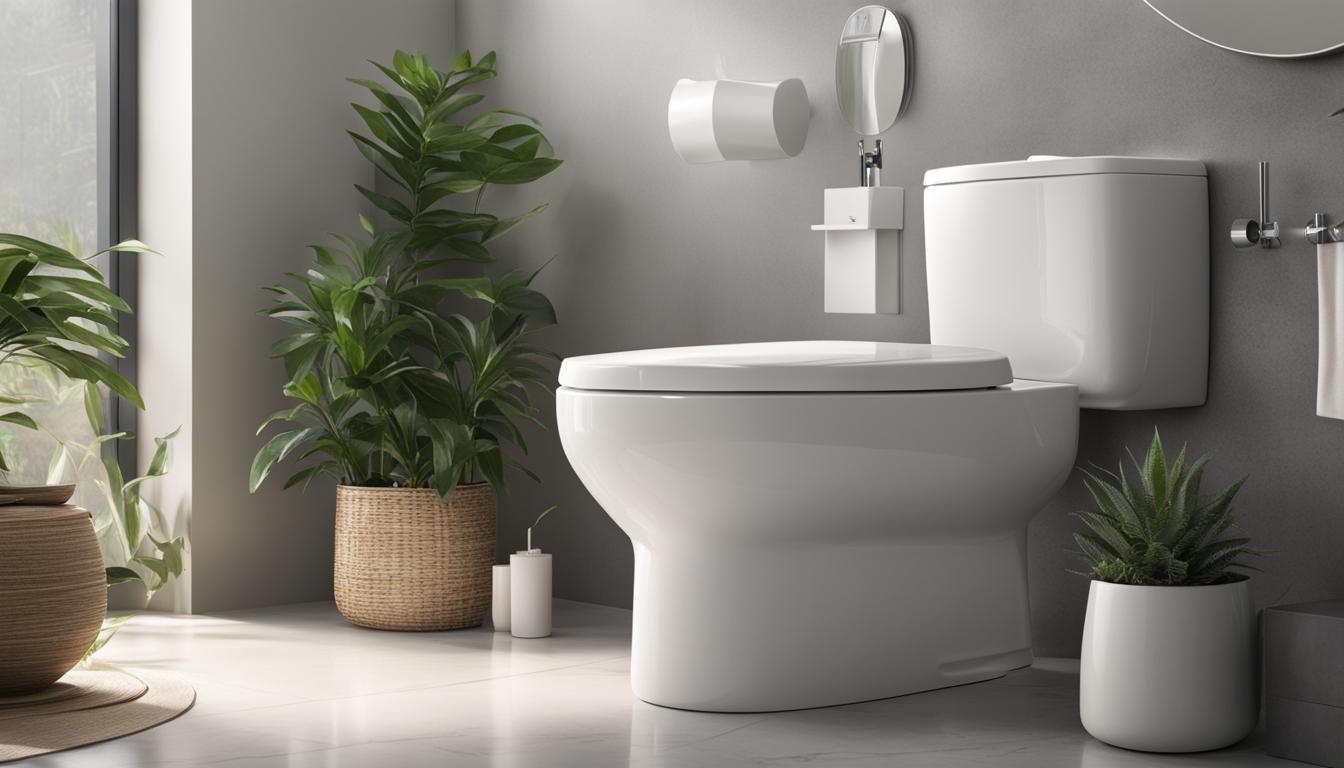Did you know that over 20% of septic system failures are caused by improper waste disposal?
In this article, we will delve into the dos and don’ts of what can and can’t go in the septic tank.
We’ll explore the harmful effects of non-biodegradable items, chemicals, and excessive water usage.
Additionally, we’ll discuss the importance of avoiding medications and personal care products in your septic system.

By the end, you’ll have a solid understanding of how to maintain a healthy septic tank.
Key Takeaways
- Non-biodegradable items can cause clogs and damage the septic system.
- Some chemicals and cleaning products can disrupt the natural processes in the septic tank.
- Grease and oils can accumulate in the septic tank and cause clogs.
- Improper disposal of medications and personal care products can have a significant environmental impact.
Non-Biodegradable Items
Non-biodegradable items shouldn’t be disposed of in the septic tank because they can cause clogs and potentially damage the system.
Plastic waste, in particular, poses a significant environmental impact when improperly disposed of. Plastics take hundreds of years to decompose, and when they accumulate in septic tanks, they hinder the natural breakdown process.
The presence of non-biodegradable items can lead to blockages in the pipes, reducing the system’s efficiency and potentially causing sewage backups. Moreover, these materials can damage the septic tank components, such as the pumps and filters, leading to costly repairs or replacements.
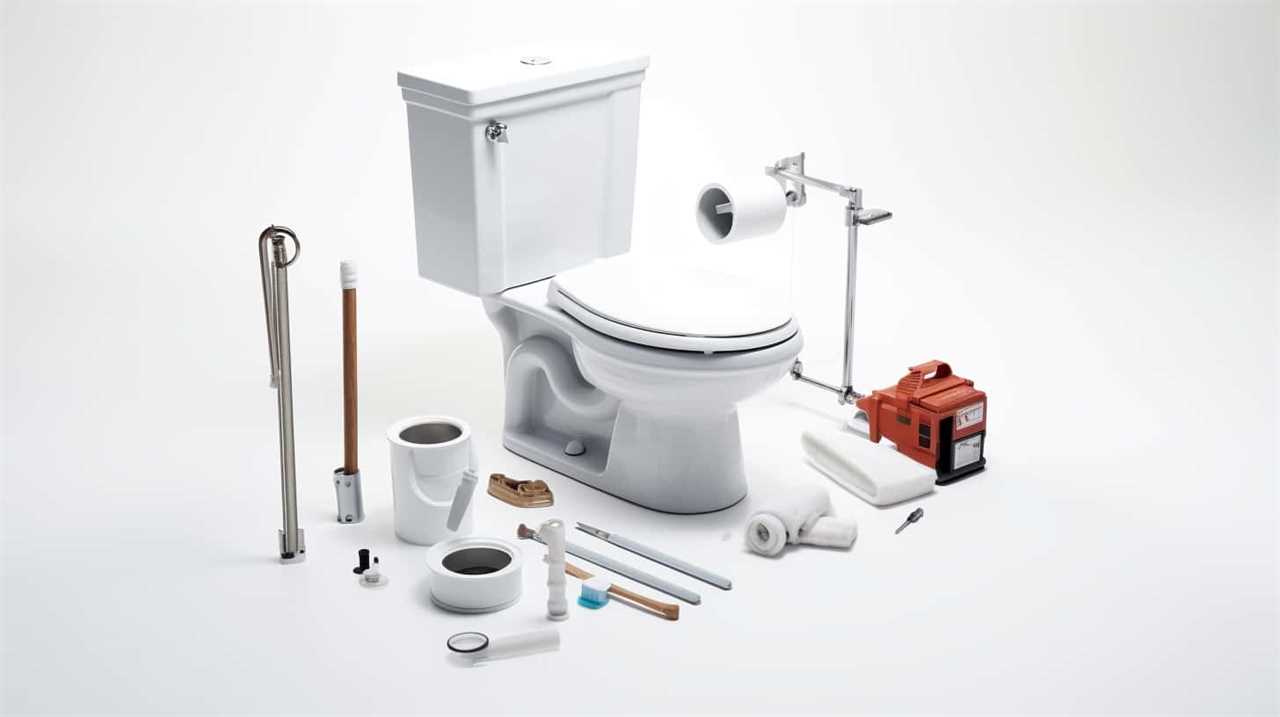
To ensure the proper functioning of the septic system and minimize the environmental impact, it’s crucial to keep non-biodegradable items, especially plastic waste, out of the septic tank.
Harmful Chemicals and Cleaning Products
To properly maintain a septic tank, we must be cautious about the chemicals and cleaning products that are introduced into the system. Harmful chemicals and cleaning products can have a significant environmental impact and can disrupt the natural processes that occur in the septic tank.
It’s important to understand that not all chemicals and cleaning products are suitable for septic tanks, as they can kill the beneficial bacteria responsible for breaking down waste.
When it comes to disposing of chemicals and cleaning products, it’s essential to follow proper disposal methods. This includes avoiding pouring them down the drain or toilet, as they can end up in the septic tank and harm the system. Instead, consult local waste management facilities for appropriate disposal options.
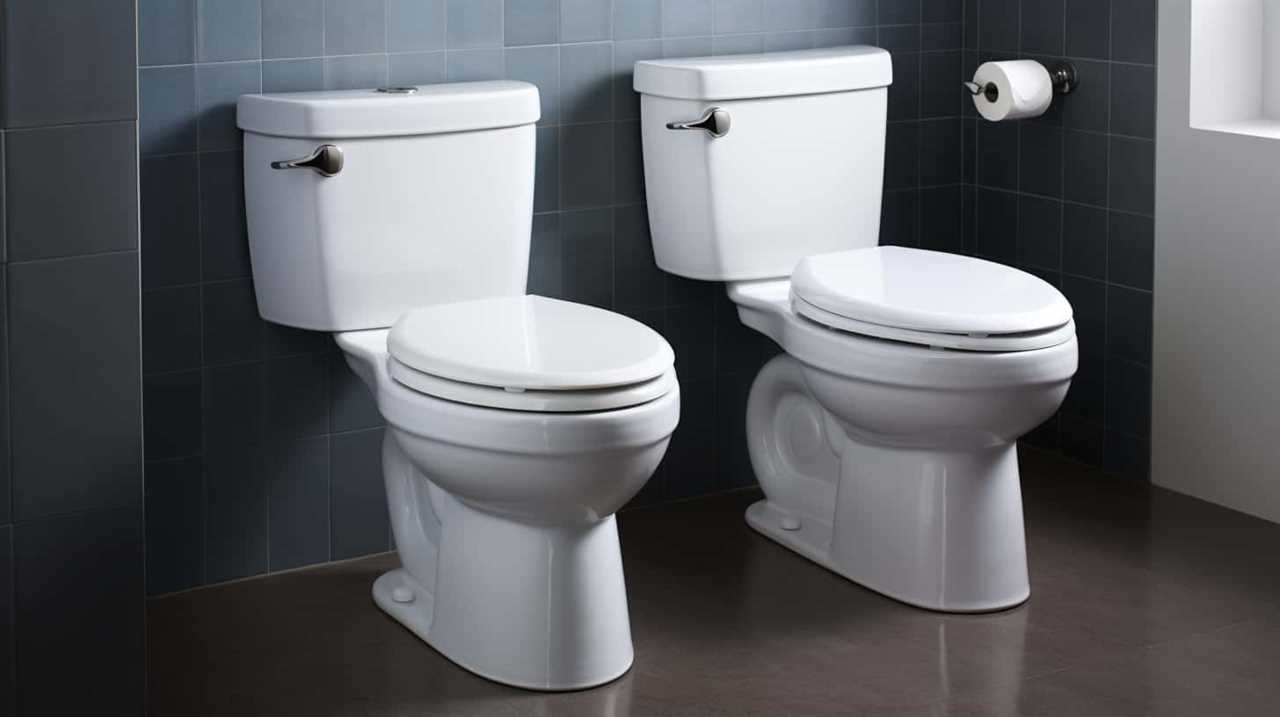
Proper disposal methods help protect the environment and maintain the functionality of the septic tank.
Transitioning into the subsequent section about ‘grease and oils’, it’s also crucial to be mindful of what goes down the drain in terms of fats and oils.
Grease and Oils
Grease and oils can have a detrimental effect on the proper functioning of our septic tank. Here are four reasons why:
- Build-up: When grease and oils are poured down the drain, they can accumulate in the septic tank over time. This build-up can clog the pipes and hinder the flow of wastewater, leading to potential backups and costly repairs.
- Solidification: Grease and oils tend to solidify when they cool down, forming a thick layer that coats the inside of the septic tank. This layer can reduce the tank’s capacity and interfere with the natural treatment process.
- Environmental impact: Improper disposal of grease and oils can harm the environment. When these substances enter the septic tank, they can seep into the soil and contaminate groundwater, posing a risk to the ecosystem.
- Proper disposal: To prevent these issues, it’s crucial to dispose of grease and oils properly. This can be done by collecting them in a container and disposing of them in the regular trash or recycling them if possible.
Understanding the impact of grease and oils on our septic tank’s functionality highlights the importance of proper disposal methods.
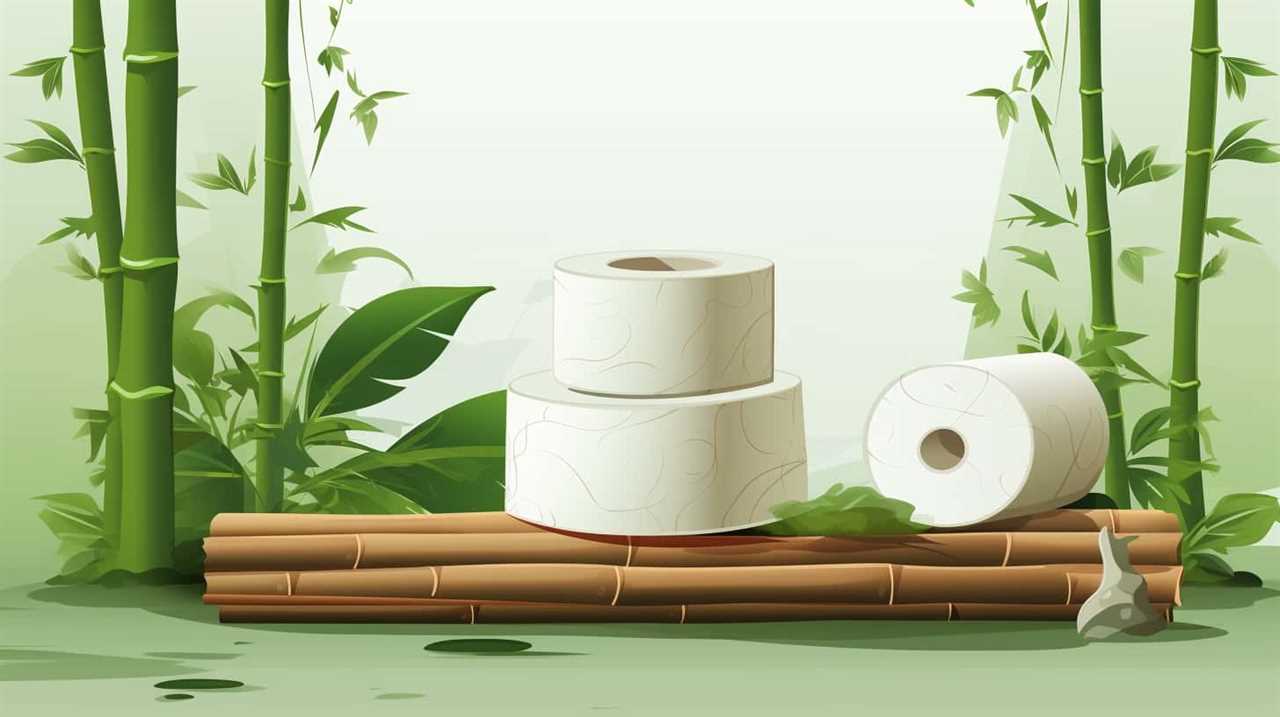
Now, let’s move on to discuss the next subtopic: medications and personal care products.
Medications and Personal Care Products
After addressing the impact of grease and oils on our septic tank, let’s now delve into the effects of medications and personal care products. These substances can have a significant environmental impact if improperly disposed of. Flushing them down the toilet or pouring them down the drain can introduce harmful chemicals into our water systems. It is crucial to be mindful of proper disposal alternatives to minimize their impact. One option is to take unused medications to designated drop-off locations or pharmacies that have take-back programs. Personal care products can be disposed of in the regular trash, but it is essential to check for any specific instructions on the product packaging. By following these disposal methods, we can protect our septic tanks and the environment from the harmful effects of medications and personal care products.
| Disposal Alternatives | Environmental Impact |
|---|---|
| Take-back programs | Minimize pollution |
| Regular trash | Landfill contamination |
| Proper packaging | Prevent water pollution |
| Responsible disposal | Protect septic tanks |
Excessive Water Usage
By conserving water and reducing our usage, we can help maintain the health and functionality of our septic tanks. Excessive water usage can overwhelm the system, leading to potential issues such as clogging, backup, and costly repairs. To minimize water usage and preserve the septic tank’s effectiveness, consider the following:
- Install water-efficient appliances, such as low-flow toilets and showerheads, to reduce water consumption without sacrificing performance.
- Fix any leaks promptly to prevent unnecessary water waste.
- Practice water conservation habits, such as taking shorter showers and only running the dishwasher and washing machine when they’re full.
- Avoid excessive outdoor water usage, such as watering the lawn excessively or leaving faucets running.
Conclusion
In conclusion, knowing what can and can’t go in the septic tank is crucial for its optimal functionality. Like a well-oiled machine, it relies on the right ingredients to keep things running smoothly. Avoiding non-biodegradable items, harmful chemicals, excessive water usage, and medications can prevent costly and messy consequences.

Treat your septic tank with care, and it will reward you with years of trouble-free operation. Remember, a little knowledge goes a long way in maintaining a healthy septic system.
